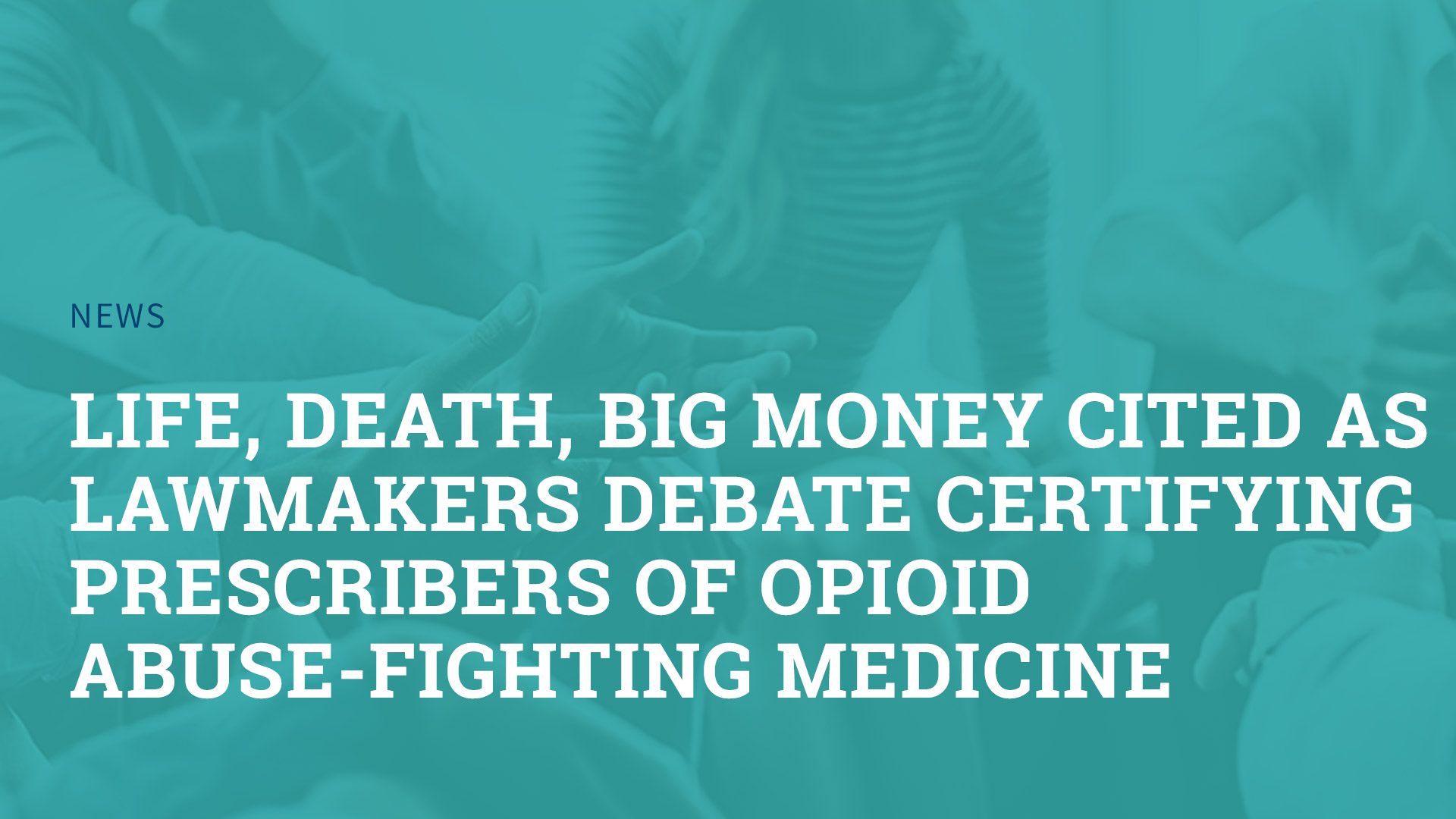Pinnacle Treatment Centers, based in Mt Laurel Township, New Jersey, has announced that Jason Snyder, regional director of strategic partnerships, has testified in a hearing at the Pennsylvania Capitol in Harrisburg, Pennsylvania, regarding the importance of buprenorphine in fighting opioid addiction. He was one of those who testified in front of the House Human Services Committee who were considering a bill that would require prescribers of the drug in Pennsylvania to have state certification and patients to get counseling in conjunction with taking buprenorphine for medication-assisted treatment (MAT).
Melanie Eilers, Senior Director of Communications at Pinnacle Treatment Centers, says, “Jason had firsthand experience on the use of buprenorphine for medication-assisted treatment of opioid abusers. He was a former opioid abuser who lost two of his brothers to addiction and then later took a key position in Governor Wolf’s fight against opioid addiction. After that, he came to work for Pinnacle Treatment Centers.”

Pinnacle Treatment Centers offers state-of-the-art, evidence-based treatment of addiction. As such, they form partnerships with all communities and people who need help in the fight against addiction. It has locations in urban, suburban and urban areas and they operate treatment facilities in low-income neighborhoods, high-income neighborhoods, and everywhere in between.
The most common substance use disorders that they treat are opioid abuse, alcohol abuse, illicit drug use disorders, and co-occurring mental health disorders. Evidence has demonstrated that the best way to treat opioid abuse is through a combination of therapy/counseling, MAT, and community support. They employ a comprehensive range of MAT programs, including Suboxone®, Vivitriol® and methadone, combined with individual counseling, group therapy, and community groups like Narcotics Anonymous.
With regards to alcoholism, they have noted that only around one million people among the approximately 15 million people diagnosed with an alcohol use disorder are getting treatment. Thus, their goal is to reduce that substantial gap gradually by developing customized treatment plans that can help patients get on their way to long-term recovery and abstinence.
And then, there is the use of illicit drugs, like heroin, stimulants, marijuana, methamphetamine, cocaine, amphetamine, inhalants, sedatives, hallucinogens, tranquilizers, and psychotherapeutic medications. Currently, there are almost 7.5 million people in the US who have an illicit drug use disorder but less than 10 percent receive the needed specialiazed treatment for their disorder.
And most difficult of all is the co-occurring mental health disorder, which is the presence of mental health disorders in people who have substance or alcohol use disorders. It could be that the substance abuse or alcoholism came first and led to depression and anxiety, or it could also be the other way around. Whatever the order, the combination presents a special challenge with regards to their treatment. Oftentimes what they do is they help patients ferret out the root cause of their drug abuse disorder or alcoholism. And then after the patient has experienced a period of abstinence, sobriety and stabilization, the clinicians will try to identify and treat any mental health conditions that are present in the absence of the substances of abuse.
Pinnacle Treatment Centers began as four office-based outpatient centers in Jamestown and Pittsburgh. Today, they have become a full continuum of community-based care and one of the top provides of quality treatment for substance and alcohol use disorders in the US. Their programs include residential treatment, medically monitored detoxification, partial hospitalization treatment, intensive patient treatment, and outpatient treatment. They provide MAT across all levels of care, with office-based opioid treatment available in certain locations. They serve more than 16,500 patients everyday at 65 locations in six states, including Pennsylvania, Virginia, New Jersey, Indiana, Kentucky, and Ohio.
Meanwhile, the leadership team at Pinnacle Treatment Centers have a combined experience of more than 100 years of providing the highest quality of care to patients. The team members come from various walks of life, with some being physicians while others are business managers, clinicians, marketers, financial experts, and more.
Those who are interested in treatments for opioid use disorder can check out the Pinnacle Treatment Centers website and contact them on the phone or through email.
Over 10000 people recovering daily through proven outpatient and inpatient addiction rehab programs. With locations in KY, IN, OH, NJ, PA, VA. Accredited.
1317 NJ-73 #200
Mt Laurel Township, NJ 08054
July 20, 2020 – Pinnacle Treatment Centers New Blog Post Discusses How Methadone Clinics Work
July 16, 2020 – Pinnacle Treatment Centers Publishes Blog Post on Uses for Methadone
July 15, 2020 – Pinnacle Treatment Centers Publishes Post on Drug Addiction Statistics in the US
June 29, 2020 – Pinnacle Treatment Centers Opens Recovery Works Portage, Detox Unit, To Help Individuals Recover From Substance Abuse
June 26, 2020 – New Pinnacle Treatment Centers Blog Article Discusses: What Is Alcohol Addiction
June 24, 2020 – Pinnacle Treatment Centers Publishes Article On Medication Assisted Treatment For Opioid Addiction
June 19, 2020 – Pinnacle Treatment Centers Explains What Alcohol Use Disorder is in New Blog Post
June 08, 2020 – Pinnacle Treatment Centers Releases Blog Post on Suboxone vs Methadone for Opioid Addiction Treatment
June 05, 2020 – Pinnacle Treatment Centers Publishes Article on Opioid Addiction Statistics
May 22, 2020 – Pinnacle Treatment Centers Answers the Question ‘Is Drug Addiction A Disease’ in New Blog Post